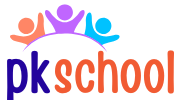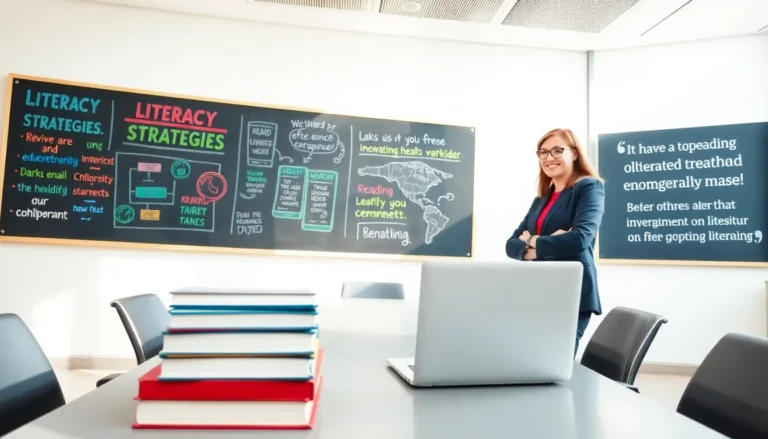In today’s fast-paced digital age, the significance of reading and literacy can hardly be overstated. You might wonder, why should one pursue a Master’s Degree in Reading and Literacy? Well, not only does it elevate your expertise, but it opens doors to a world of career possibilities that you didn’t even know existed. Imagine being the superhero who transforms the lives of struggling readers. Now, that’s a story worth telling. Let’s jump into why this degree could be the best decision you ever make.
Table of Contents
ToggleUnderstanding The Importance Of Literacy

Literacy is more than just being able to read and write: it’s the foundation of education and a crucial skill for daily life. The implications of literacy are monumental, impacting an individual’s ability to access information, participate in the community, and achieve personal goals. When people struggle with literacy, their opportunities become limited, which can perpetuate cycles of poverty and inequality. Educators equipped with a Master’s Degree in Reading and Literacy are essential in combating these challenges. They bring effective teaching strategies and research-backed methods into classrooms, creating environments that foster not just skills but a love for reading itself. In a world increasingly driven by information, understanding literacy’s importance is crucial, not only for individual growth but also for societal progression.
Benefits Of A Masters Degree In Reading And Literacy
Obtaining a Master’s Degree in Reading and Literacy carries a wealth of advantages. First off, it empowers educators with advanced pedagogical techniques tailored for diverse learners. Specialized training allows graduates to identify and address varying literacy needs, creating personalized learning experiences. Also, this degree tends to be a distinguishing factor in career progression. Educators with advanced credentials often find themselves in higher demand, which can lead to increased job security and potential higher salaries. Besides, it opens pathways to leadership positions, not just within schools but also in the broader educational landscape, such as curriculum development or educational consultancy. The ripple effect of this degree can resonate throughout entire communities. When educators excel, their students thrive, eventually leading to a brighter future for all.
Core Curriculum And Course Structure
The curriculum of a Master’s Degree in Reading and Literacy typically encompasses a blend of theoretical knowledge and practical application. Core courses might include subjects such as literacy development across the lifespan, assessment and intervention strategies, and the psychology of reading. Students may also explore critical issues in literacy education, learning theories, and technology’s impact on reading. Many programs incorporate hands-on experiences, requiring students to engage in classroom practice or supervised internships. This real-world application helps bridge the gap between theory and practice, ensuring that graduates are not just knowledgeable but also adept in implementing effective reading strategies. Overall, the structure of the program is designed to develop competent educators who can confront the challenges of literacy in today’s diverse classrooms.
Career Opportunities With A Masters In Reading And Literacy
Graduates holding a Master’s in Reading and Literacy gain access to a wide array of career opportunities. Most notably, they can become literacy specialists or reading coaches, focusing directly on improving students’ reading skills. Another option includes positions as educational consultants, advising schools on literacy programs and interventions. Curriculum developers also benefit from this degree, as they work on creating and refining instructional materials aimed at enhancing reading comprehension across various age groups. Also, roles in administration, such as academic coordinators or program directors for literacy initiatives, are promising avenues. The versatility of this degree means that educators can find fulfilling careers in various educational settings, from K-12 schools to adult education and even non-profit organizations focusing on literacy.
Specialization Areas Within The Program
Within a Master’s program in Reading and Literacy, students often have the opportunity to specialize in various areas. Some programs may focus on early literacy, emphasizing methods tailored to young readers, while others might investigate into literacy for English language learners, addressing the specific needs of non-native speakers. There are also options to concentrate on special education literacy strategies, which is crucial for supporting students with learning disabilities. Also, some programs may offer electives in digital literacy, understanding how technology alters reading behaviors and access to information. These specialized tracks allow students to tailor their education to align with their career aspirations and the specific needs of the populations they wish to serve.
Challenges And Considerations
Pursuing a Master’s Degree in Reading and Literacy is not without its challenges. Aspiring students should consider the demands of graduate coursework, which often requires balancing academics with professional responsibilities. Time management becomes essential, especially for individuals who are already working in education. Financial considerations may also come into play, as tuition for graduate programs can be substantial. It’s important for students to explore scholarship and financial aid opportunities that can alleviate this burden. Also, the field of literacy education is continually evolving, necessitating ongoing professional development even after graduation. Staying current with new research, instructional methods, and technology is pivotal for maintaining effectiveness in this role.



